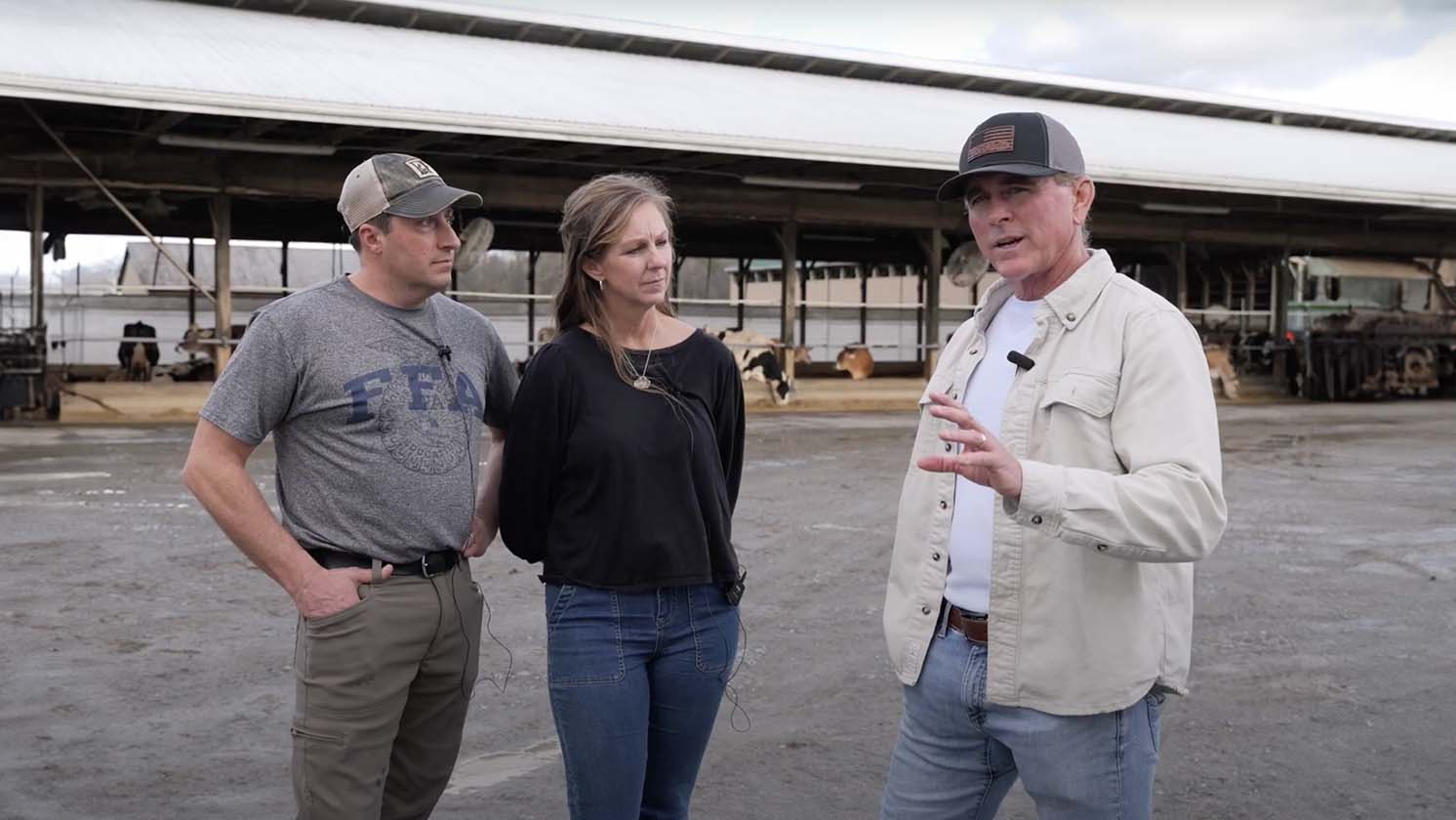Discussions around raw milk often lock into “raw milk is safe” vs “raw milk is not safe.” Raw milk is like any other food. If it’s contaminated, it might pose a risk. Otherwise, it’s safe. Medical panickers draw their listeners into fear by posing hypotheticals, but that’s a distraction from the actual organs of our food system.
Food processors and other industry-related organizations are the primary opponent to raw milk legalization. The ones who rally journalists and spam us the hardest are the ones who own or profit from pasteurization facilities. Industrial agriculture is the primary opposition to the legalization of raw milk sales. They drag the health departments to legislative hearings, not the other way around. They do so to keep their farmers (think of them as gig workers) bottlenecked and contained in their system.
Dairy farmers in the industry
Pasteurization mandates represent a way for those plants to justify the existence of milk-processing facilities and force dairy farmers to provide the raw material for their conventional dairy products. Direct-to-consumer sales become impossible due to the overhead that would be required for those farmers to build out the necessary facilities. When direct-to-consumer raw milk sales are against the law, dairy farmers can only sell their raw milk to milk-processing plants. That means the milk processors can set their own price.
If my raw milk farmer needs another 50 cents for his gallon of milk, he can set the price. If a conventional farmer needs an extra penny, that’s not factored into the price at all. He shows up with his truck full of milk and the processor lets him know what he’ll be getting paid.
As such, outcomes for the two types of raw milk farmer are starkly contrasted. Raw milk farmers are growing, one of my farmers in Eastern Washington upgraded from a 47 acre farm to a 200 acre farm. Conventional milk farmers are in the midst of an ongoing suicide crisis.
Wisconsin Watch: ‘The happiness and joy has been sucked out of me’: Wisconsin dairy farmers face mental health crisis
Farm Progress: Depression driving some dairymen to suicide
This is an economic crisis for these farmers, caused by the corporate capture of food processing bottlenecks – ie pasteurization mandates.
Raw milk legalization balances this power dynamic and provides farmers with a path to independence from the conventional dairy industry. This helps me know they’ll be here into the future.
Do farmers drink their own milk raw?
Yes, that’s the only way they can get it “free.”
Once milk has been sold to the milk processor, it’s out of the original farmer’s hands. The only way they can get it past that moment is to buy it at the store, like the rest of us.
In order to get a good deal on the milk that they produce, these farmers simply tap the bulk tank. They’ll pour off however many gallons their family needs, and send the rest off for the commodities market.
Some farmers believe raw milk is better for you, and it may very well be, but the grab is part of the assembly line.
Raw milk is choice for these farmers
Delaware has strict laws against raw milk sales, it’s completely banned. The state also has a dwindling number of dairy farms. Ten years ago, there were 44 dairy farms, now there are only 13 dairy farms left in the state.
SB273 stands to legalize farm-to-consumer raw milk sales in Delaware for the 2024 session.
Here’s a farmer couple who have been tapping their bulk tank for years. They’d like to structure their business around raw milk direct-to-consumer sales, and I hope they’re free to do so this time next year.
Also: I remembered that Iowa Dairy Farmer stated on Facebook that he consumes 80% raw milk from his dairy, before it goes to pasteurization. Topic of the video is an Iowa bill from 2022, different than the bill from 2023 which legalized raw milk sales in Iowa under a permitting and inspection system.
